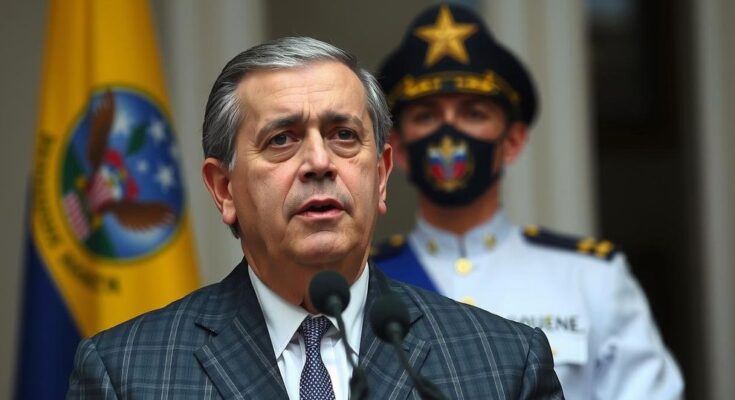Costa Rica, Ecuador, Panama, and the Dominican Republic have condemned Nicolás Maduro’s inauguration for a third term as President of Venezuela, citing fraudulent elections. Despite Maduro’s claims of winning with 52% of the votes, opposition leader Edmundo González Urrutia asserts he won with 70%. The situation is compounded by reports of political arrests, and the UN has called for the release of detained individuals.
On January 10, 2019, Costa Rica, Ecuador, Panama, and the Dominican Republic issued a strong rejection of Nicolás Maduro’s inauguration as President of Venezuela for a third term. The Alliance for Development in Democracy (ADD), to which these nations belong, condemned the ceremony as an illegitimate act stemming from what they termed a fraudulent electoral process characterized by state-sponsored intimidation against the Venezuelan populace. Opposition candidate Edmundo González Urrutia contended that he was the rightful winner of the July 28 presidential elections, labeling the inauguration a “coup d’état.”
Maduro has held the presidency since 2013, and his recent swearing-in has faced widespread criticism from the international community, including the United States and the European Union. According to the ADD, there are substantiated claims that the majority of voters preferred González Urrutia during the elections, which they argue took place under duress. Despite the Venezuelan electoral authority declaring Maduro the victor with 52% of the vote, the detailed electoral data required by law remain unpublished. In contrast, González Urrutia alleges he received 70% support from the voters. The ADD reiterated its commitment to collaborating with the international community to facilitate a democratic transition in Venezuela, ending a troubling era of oppression and human rights abuses.
The dire situation in Venezuela is exacerbated by reports of politically motivated arrests. Alfredo Romero, the president of the NGO Foro Penal, announced that there have been 49 such arrests recorded since the beginning of the year. UN Secretary-General Antonio Guterres has expressed deep concern over human rights violations in Venezuela and has urged the release of all individuals detained arbitrarily.
The political climate in Venezuela has deteriorated significantly under Nicolás Maduro’s presidency, marked by allegations of electoral fraud and systematic violations of human rights. The ADD, a coalition of Latin American countries, condemns what they perceive as an illegitimate regime installed through coercive means. Maduro’s presidency, initiated in 2013, has faced challenges from various opposition factions, notably those supporting Edmundo González Urrutia, who claims to be the legitimate victor in the most recent elections. The international community remains vigilant regarding the developments in Venezuela, advocating for a democratic resolution to the ongoing crisis.
In summary, the rejection of Nicolás Maduro’s inauguration by Costa Rica, Ecuador, Panama, and the Dominican Republic underscores the widespread condemnation of his government within the international community. The ADD’s assertion of electoral fraud reflects ongoing concerns regarding the legitimacy of Maduro’s presidency. With allegations of political repression and human rights abuses persisting, collaboration among nations and international organizations remains crucial in promoting a democratic transition in Venezuela.
Original Source: ticotimes.net




